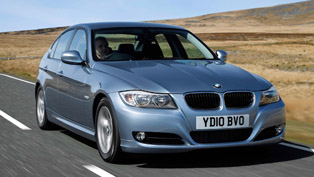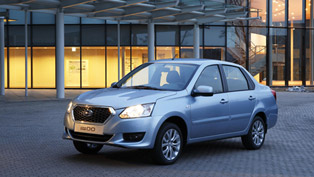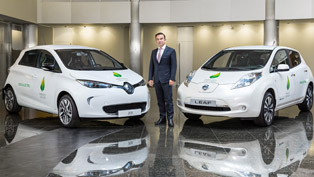Are Renault Set to Electrify the Car Market?
62% of motorists have reduced the amount of time they spend behind the wheel as a result of rising running costs. Remarkably, a further 5% of motorists have been forced to give up driving altogether.
This is a problem for which there has appeared to be no obvious solution. Public transport is often not on time and certainly not convenient; while efforts by major manufacturers to produce a viable green car option have been sparse. The green cars that have been produced have not been viewed as a viable alternative by motorists in general either due to high initial purchase costs or impracticality.
However, French car manufacturer Renault believes that it finally has the answer to these problems; and is so confident in the concept that it has gone about launching a complete electric vehicle fleet.
Why have others failed?
Nissan became the first major manufacturer to put an electric vehicle into mass production in 2010 with the Nissan Leaf; a car with a selling price of £25,990 (after a government subsidy) which is capable of about 100 miles between charges.
Since the launch, it has been the high initial selling price which has prevented the vehicle from becoming mainstream, despite the obvious consumer demand for more fuel friendly options. After all, a brand new Focus would cost close to £12,000 less than a brand new Leaf.
It has been estimated that it would cost just £2 for an electric vehicle such as this to recoup its total charge. Based on this logic, it would cost just £180 per year for the average driver to complete their annual 9,000 miles of on-the-road travel. This works out at a remarkable saving of about £1,150 compared to what the average Vauxhall Corsa driver would spend each year on fuel.
However, while this is a significant amount, it would still take over ten years to recover the additional purchase costs before overall savings could be experienced.
What has Renault done different?
Renault has therefore set about dramatically reducing these high initial purchase costs so that they are not too dissimilar from those charged for conventional fossil fuel vehicles. The cheapest of their offerings is the Renault Twizy city car which available from just £6,690 but is still capable of completing 62 miles between charges.
This low cost mentality has been maintained across the whole of the vehicle range even with the new Renault Kangoo electric van which is actually £4,000 less expensive than a conventional Ford Transit.
However, it is the Renault Zoe which is perhaps the most impressive offering in Renault's electric range. The Zoe is equivalent in size to the Clio and available from £13,650. Most impressive of all is the fact that it has a range 130 miles between charges which will no doubt be more than enough for the average motorist to complete their daily commute. The fact that it is just under £4,000 more expensive than a Fiesta means that running cost savings wouldn't take half as long to be experienced.
Are there any drawbacks?
The fact that the electric vehicles are more limited in terms of their total range between charges/re-fills is obviously a handicap, but the total time it takes to recharge is actually a larger concern. This limited range would surely not be half as problematic if it didn't take between 6 and 8 hours to recoup total power.
Nevertheless, as Renault itself has pointed out, a range of 130 miles on a Zoe will be more than sufficient for the average commuter. In addition to this, the fact that the Twizy is not liable to road tax or congestion charging makes it the ideal city runabout in a place like London.
However, the one problem which has been created by Renault is the contract governing battery hire. Anyone who purchases a Renault Zoe for instance must commit to paying £70 to rent the battery for the next 3 years otherwise they aren't going to be moving very far. The contract also stipulates that owners will not be able to do more than 6,000 miles per year within paying an additional unspecific "excess mileage charge".
Battery rental charges are therefore likely to go some way to eradicating the fuel savings made by motorists; with Zoe owners set to pay at least an extra £840 per year; reducing the potential saving to just £310 over the cost of buying fuel for a Vauxhall Corsa.
Have Renault got it right?
Renault have made a significant step forward with these vehicles, creating affordable electric vehicles for the first time which are likely to financially viable to the public at large. On top of this Renault are the kings of marketing and brand perception in the motoring world, and if anyone is capable of carving out an attractive image for an electric car it is them.
However, these battery rental fees are a massive cause for concern which will likely prove off putting for the majority of motorists. This along with the limited range and length recharging times will likely prove to be off putting for the majority.
But this doesn't mean that Renault's electric range won't appeal to anyone, with city dwellers likely to find the Renault Twizy a very attractive proposition. Battery rental on the Renault Twizy is just £45 per month; a fee which would be recouped by spending just 5 days in areas covered by the London congestion charge. Owners could then start to benefit from a heavily reduce annual fuel bill despite spending well under £7,000 for the initial vehicle.









